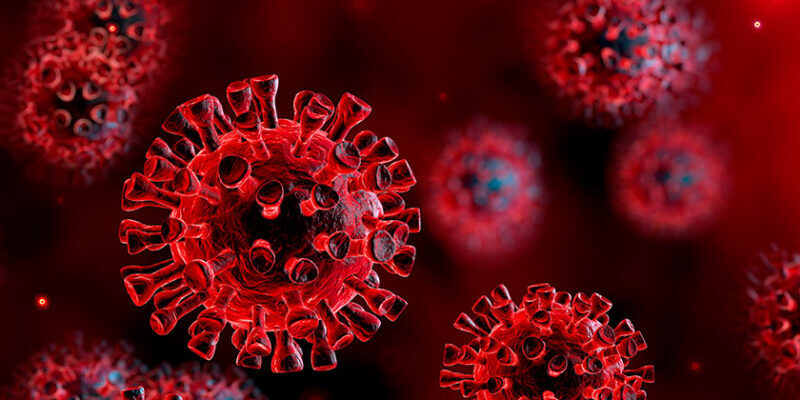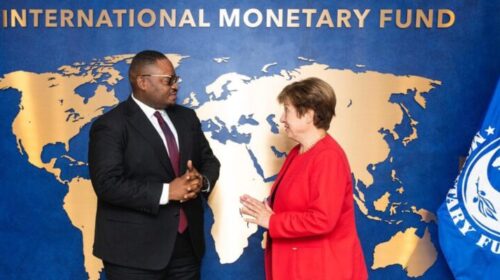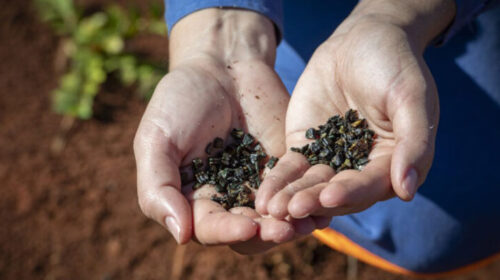Curfew in the DRC: ODEP calls for the monitoring of 9 activity sectors to consolidate the multisectoral emergency program against of covid-19
In its press release published on Tuesday, December 22, the Observatory for Public Expenditure (ODEP) pointed out to the government that the curfew, established since Friday, December 18, is a partial confinement of 8 hours a day which will cause new damage to the economic and social fabric.
For this second wave, believes this civil society organization, it is necessary to assess and take charge of the economic damage that the curfew will cause in the cost of the PMUAIC (multisectoral emergency and mitigation program for the impacts of covid -19) in the short and medium term.
According to ODEP, as in the first wave of covid-19, several sectors of the national community are concerned by this second wave: Plan, Health, Energy, Transport, Economy, Budget, Finances, Food security, Environment, Humanitarian Action, Work and Social Security, Industry, Commerce, etc. He therefore calls on the government to monitor each sector to consolidate the implementation of PMUAIC.
1. The Plan : The Multisectoral Emergency Mitigation Program for the Impacts of Covid-19 was developed under the coordination of the Ministry of Planning, which is responsible for initiating a mid-term evaluation of the initial program. and consolidate it with the new needs arising from the assessment of the pandemic and the new measures of the Government and their impact on the economic and social fabric.
2. Transport : mototaxis, taxis, spirit of life or death buses, Transco, all these modes of transport create a lot of informal or formal employment, create operating income for owners who live from this activity and pay taxes to the state. It should be noted, for example, that some taxi owners have their vehicles operated by two drivers, one during the day, the other at night. This shortfall is not to be demonstrated. These activities hit hard by the response measures against the coronavirus must be compensated for the harmful effects of the previous confinement and taken into account for the new damage resulting from the curfew and the measures that accompany it.
3. Private and public companies : the new measures will accentuate the drop in the production of goods and services, drop in turnover, drop in profits, disappearance of jobs, etc. We must assess this negative impact of the government’s salutary measures against the pandemic, on companies (SMEs and PMEA) and compensate them for the negative effects of previous and current measures.
4. Infrastructures : medical response teams can only be effective if road, rail, air, river, ports and telecommunications are functioning and energy is available. It is also necessary to equip and rehabilitate the hospitals, which receive the sick. All of this must be assessed and readjusted;
5. Prices (Economy) : The fight against artificial speculation on prices is also a very important aspect. It is necessary to provide for a mechanism for monitoring prices on the market by calling on the police, to punish offenders if possible. All of this deserves increased financial support;
6. Industry : With a view to self-support by ourselves, the State could consider participating in the financial strengthening of certain local industries in the field of the production of drugs based on medicinal plants. local such as cinchona for example. The local industry can also participate in the distribution of water and food, disinfect the affected neighborhoods, participate in the manufacture of disinfectants and protective materials against covid-19. There is a cost to readjust.
7. Internal trade : there are many economic operators affected by the previous measures and by the current measures which will accentuate the damage: sellers in all our markets, small itinerant vendors, small traders in Gombe, Kasa- Vubu, Ndjili, Lemba, everywhere, gas stations, terraces, bars, nightclubs, modern restaurants, malewas, quado, many more those who start their activities from 3 pm; all are hit hard and are on the verge of bankruptcy. Their support represents a cost that the State must assume.
8. Foreign trade: The risks of worsening deficits in our trade balance vis-à-vis our trading partners remain very very high; with the implementation of new measures which are certainly beneficial for the health of all but destructive of the economic and social fabric, little exportation, little foreign exchange, little importation of intermediate consumption, decrease in domestic production and will feed the circle vicious of poverty. There must be compensation.
9. The agricultural and rural sector : The agricultural and rural sector, already under strain with the response measures to the first wave of Covid-19, risk collapsing further, food products are likely to be lacking in urban populations with import difficulties. The food crisis will take on alarming proportions and social explosions are to be expected, hunger riots and then looting of sad memory which will permanently collapse our meager infrastructure and our economy.
As a reminder, since March 10, 2020, the cumulative number of cases is 15,495, the cumulative number of deaths is 370 and 13,447 healed as of December 20, 2020.
During the first wave, the total containment of Gombe, center of formal, informal and administrative economic activity in Kinshasa and the country, had negatively shaken the economic fabric, causing a huge overall shortfall in turnover. a large number of production companies, shops, services, social sectors, financial authorities, public companies and services, and the informal sector, etc.
To date, no public body has carried out the necessary studies to find out the impact of the effects of covid-19 on the economy of the DRC. The Federation of Congo Businesses (FEC) conducted a survey in May 2020 to find out the impact of covid-19 on member economic operators. As a result, 98% of companies surveyed were negatively impacted by this pandemic.
![]()





